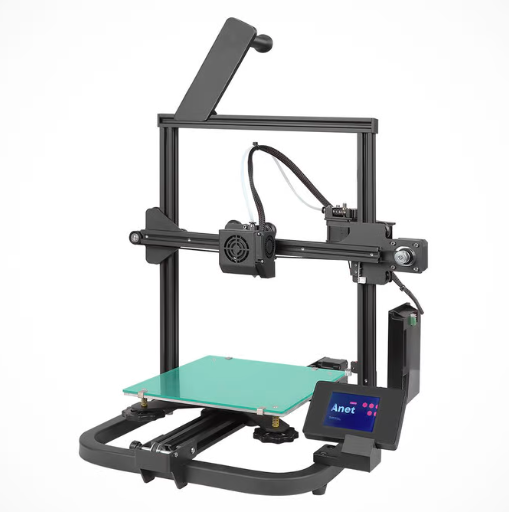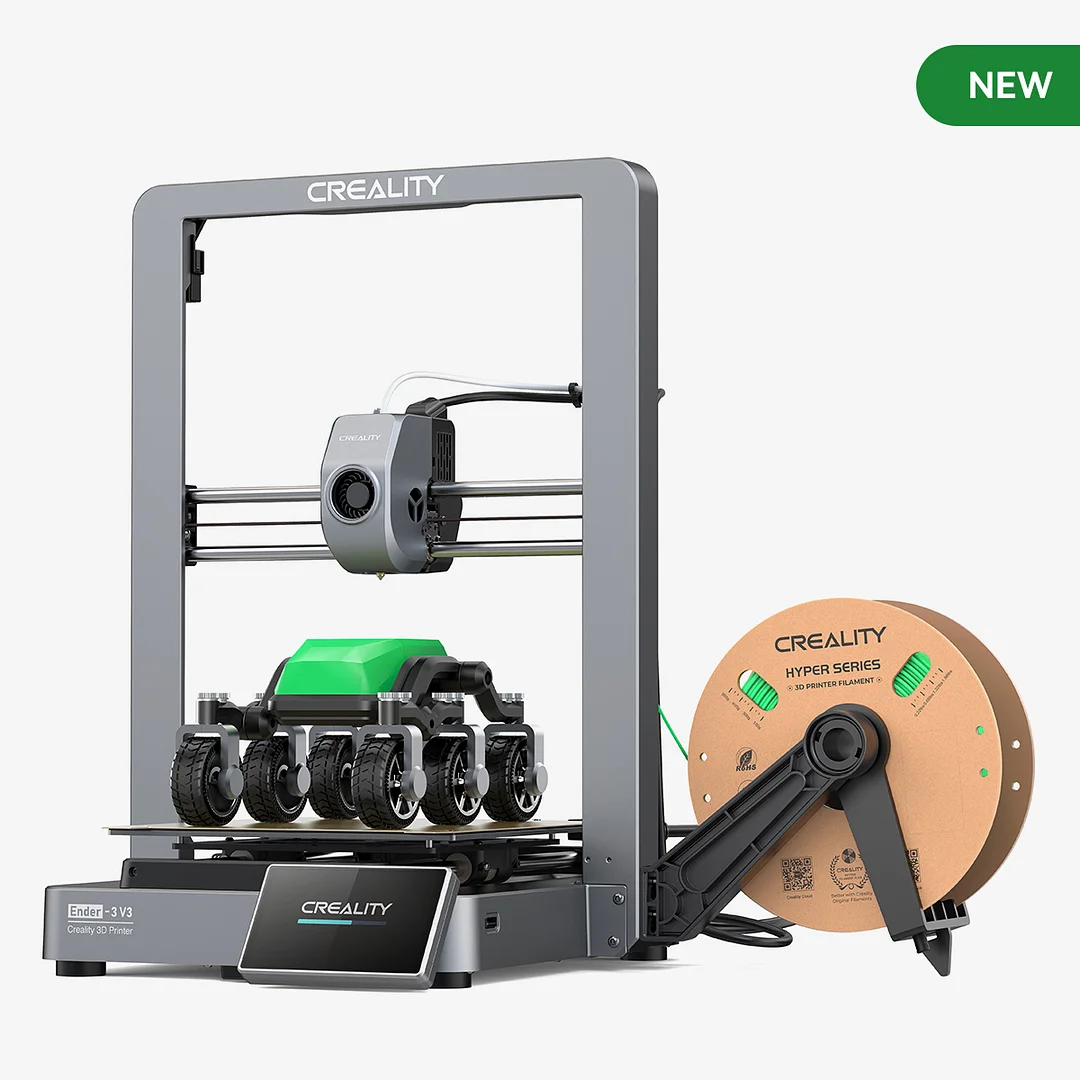Compare A8 V2 vs Ender 3 V3
Comparison between the best 3D printers
Choose the best 3D printer at the best price. The cheapest 3D printers are here.
Buy a 3D printer here with 3D Fila.
 |
 |
|
| Model | A8 V2 |
Ender 3 V3[BUY Ender 3 V3] |
| Printing Material | Filament | Filament |
| Buy Filament for Anet A8 V2 | Buy Filament forCreality Ender 3 V3 | |
| Estimated price | $129,00 | $389,00 |
| Manufacturer | Anet | Creality |
| Release Year | 2021 | 2024 |
| Print Volume [mm] | 220x220x250 | 220x220x250 |
| Printer Size [mm] | 428x441x486 | 358x374x498 |
| Weight [kg] | 6,2 | 7,12 |
| Power Loss Recovery | NO | YES |
| Enclosed printer | NO | NO |
| Bed Leveling | Manual | Automatic |
| Filament End Sensor | NO | YES |
| Bed type | Heated | |
| Power supply system | Bowden | Direct Drive |
| Standard nozzle | 0,4 | 0,4 |
| Maximum Nozzle Temperature [°C] | 230 | 300 |
| Maximum Bed Temperature [°C] | 110 | |
| Maximum printing speed [mm/s] | 150 | 600 |
| Filament holder | YES | YES |
| Camera for supervision | NO | NO |
| Recommended filaments | PLA | PLA, PETG e TPU (95A+) |
| Recommended slicers | Cura, Simplify, Slic3r, IdeaMaker | Creality Print, Cura 5.0 ou superior, Prusa Slicer e Simplify3D |
| Maximum Resolution [mm] | 0,1 | 0,01 |
| Processor | 32 Bits | |
| Display | Display touchscreen 2,8'' | 4.3" HD touch screen |
| Power Supply | 110/220V / 250W | 350 W |
| Connectivity | SD / USB | USB drive, LAN, Creality Cloud APP |
| Operating systems | Windows, Mac, Linux | Windows, Linux, Macbook |
| Date of registration in the system | 2022-11-10 | 2024-03-01 |
| Release date | 2021 | 2024 |
| Extra features | The Anet A8 V2 is a Cartesian-XZ type 3D printer with a build volume of 220 x 220 x 250 mm, Ender 3 design and V-slot assembly. It has a 32-bit motherboard and touchscreen interface, promising ease of use. It uses open source firmware and has thermal failure protection. It stands out for its cable organization and the absence of a heated bed, focusing on energy savings and PLA printing. It comes with an external power adapter, aiming at greater safety, especially for beginners and educational use. | The Ender 3 V3 redefines 3D printing with its CoreXZ system, reaching speeds of up to 600mm/s, and stable metal construction with cast parts. It stands out for its powerful direct extrusion, quick-change tri-metal nozzle, and two powerful fans for instant cooling. Equipped with automatic calibration, it makes leveling and adjustments easy, promoting a fast and reliable printing experience with various materials. |
| Support for multiple colors and materials (AMS and CFS) | NO | NO |
Notes * |
||
| Cost-benefit | 6 / 10 | 7 / 10 |
| Hardware | 0.5 / 10 | 3.2 / 10 |
| Tela | . | . |
| Print volume | 3 / 10 | 3 / 10 |
| Performance | 1 / 10 | 5 / 10 |
| [BUY Ender 3 V3] |
Conclusion |
| In comparing the Anet A8 V2 and the Creality Ender 3 V3, it's clear that both printers cater to different user needs and budgets, showcasing distinct strengths and weaknesses. The Anet A8 V2 is an economical option for beginners, offering a decent build volume and essential features. Its manual bed leveling may present a challenge for users lacking experience, but the overall simplicity and lower price point make it an attractive choice for those primarily focused on PLA printing and looking to enter the world of 3D printing without significant investment. Its lightweight construction and compact design add to its appeal for casual users and educational environments. On the other hand, the Ender 3 V3 is a more advanced machine designed for those seeking higher performance and versatility. With automatic bed leveling, rapid maximum printing speeds, and a robust build quality, it stands out as a premium option. The capability to handle various filament types enhances its utility for enthusiasts and professionals looking for reliable performance and quality output. Despite a higher price point, the additional features and better hardware justify the investment for users who demand more from their 3D printing experience. In conclusion, if cost is the primary concern and you are just starting, the Anet A8 V2 could be a suitable choice. However, for those willing to invest more for advanced features, greater reliability, and improved overall performance, the Ender 3 V3 represents the better value in terms of capabilities and future-proofing. Ultimately, the decision should align with your specific printing needs, budget, and experience level. |

